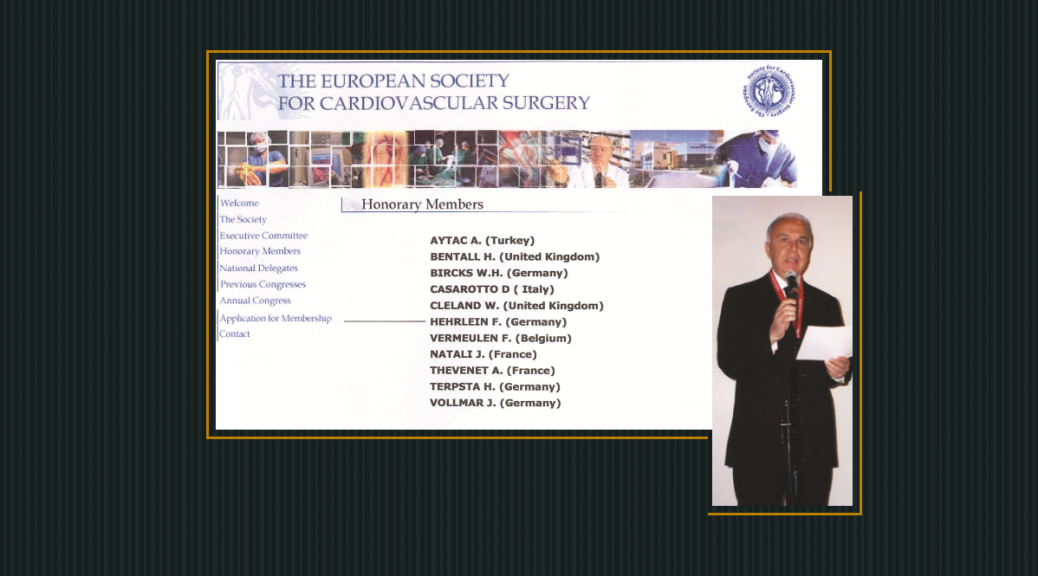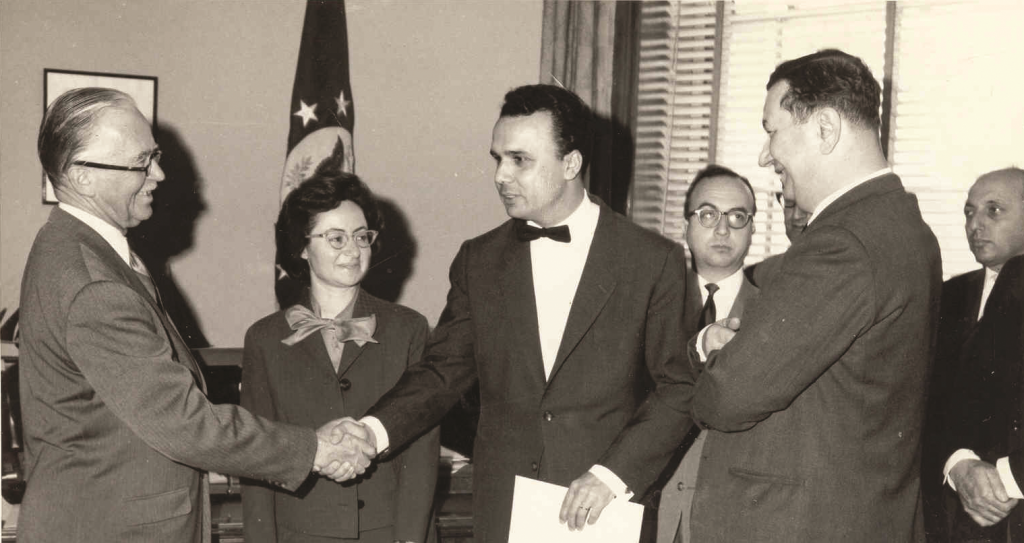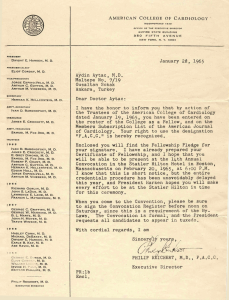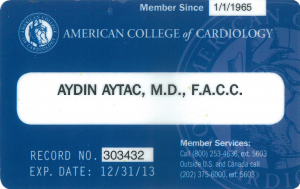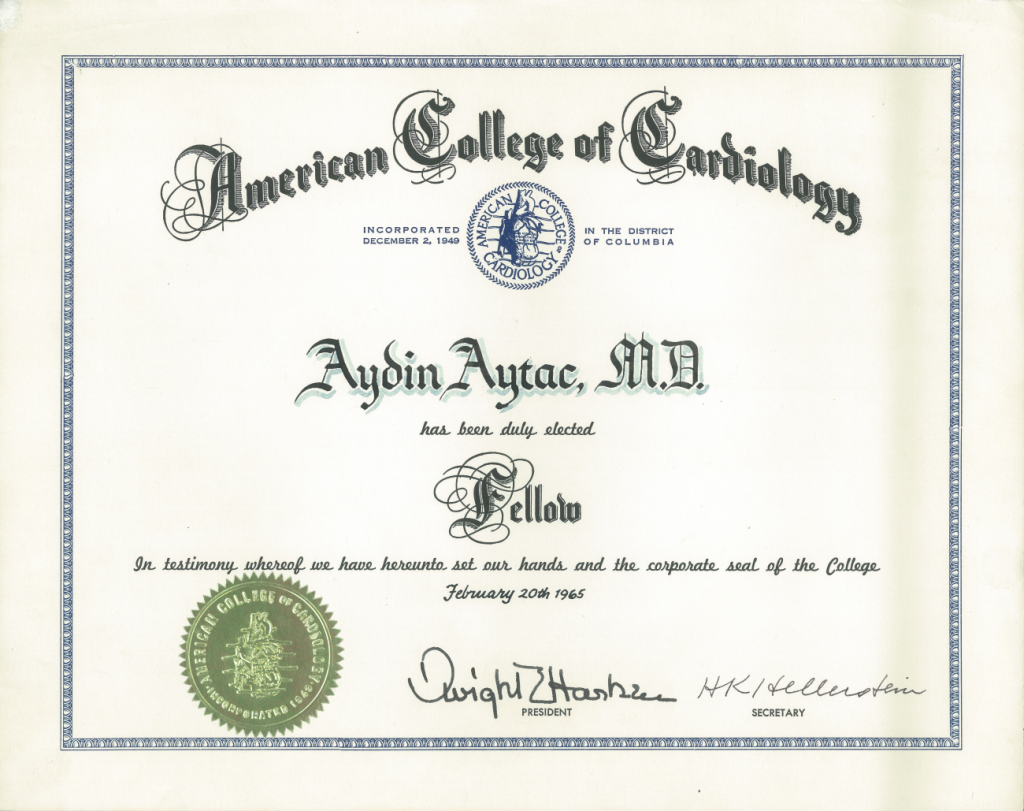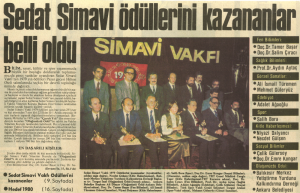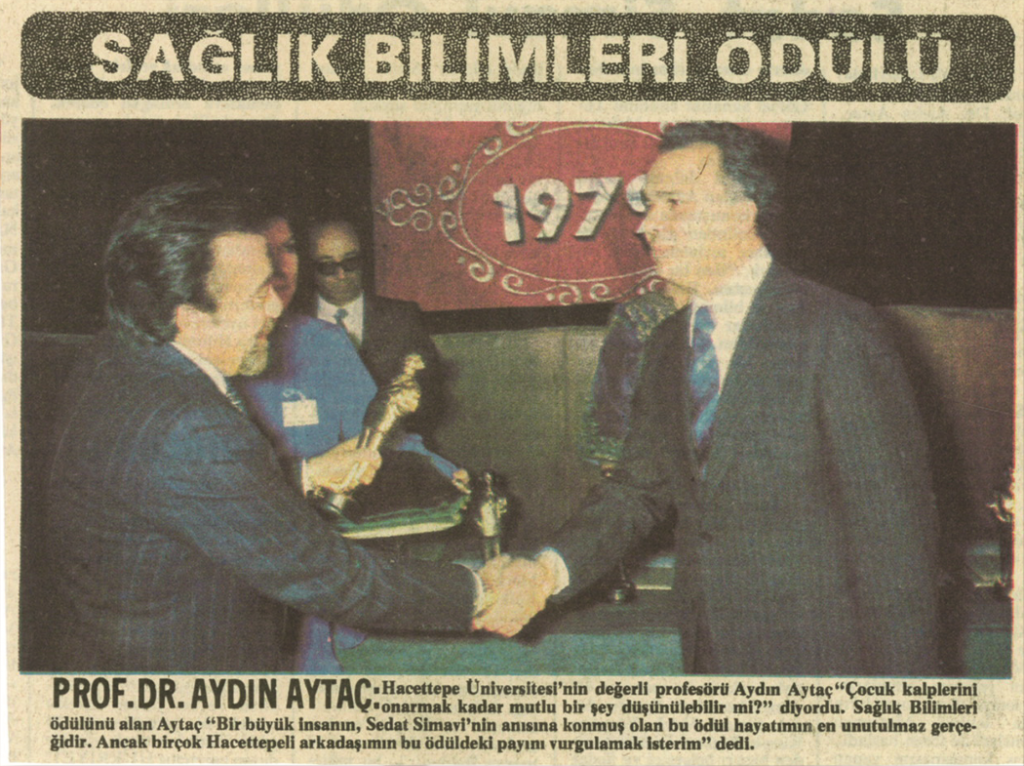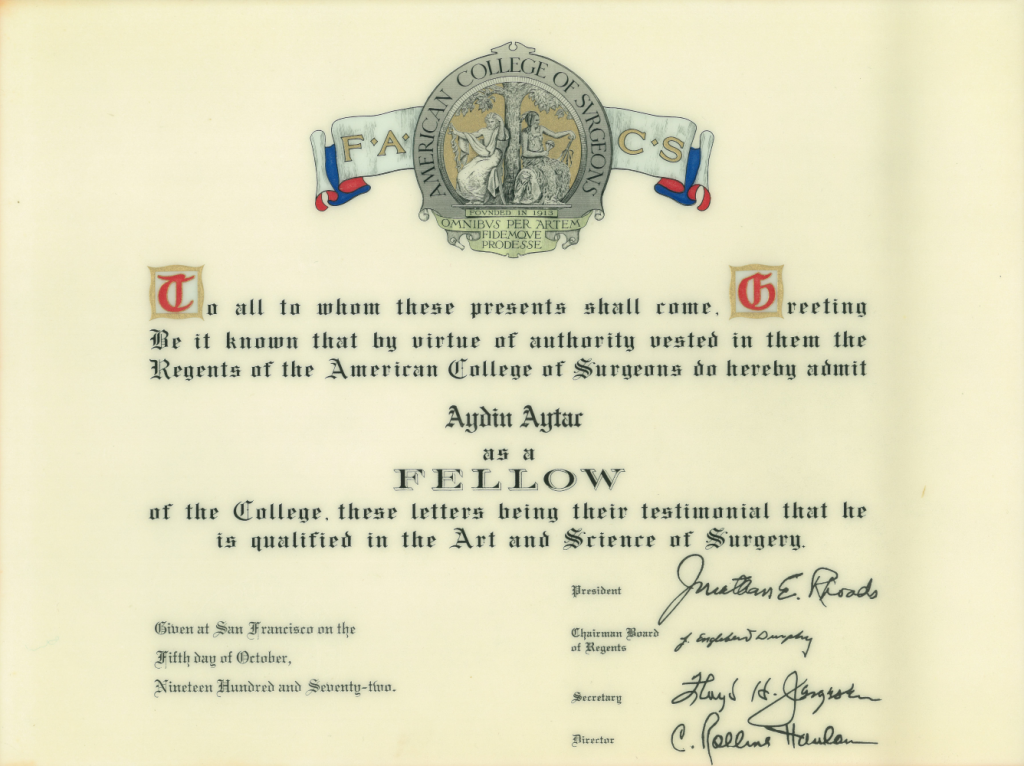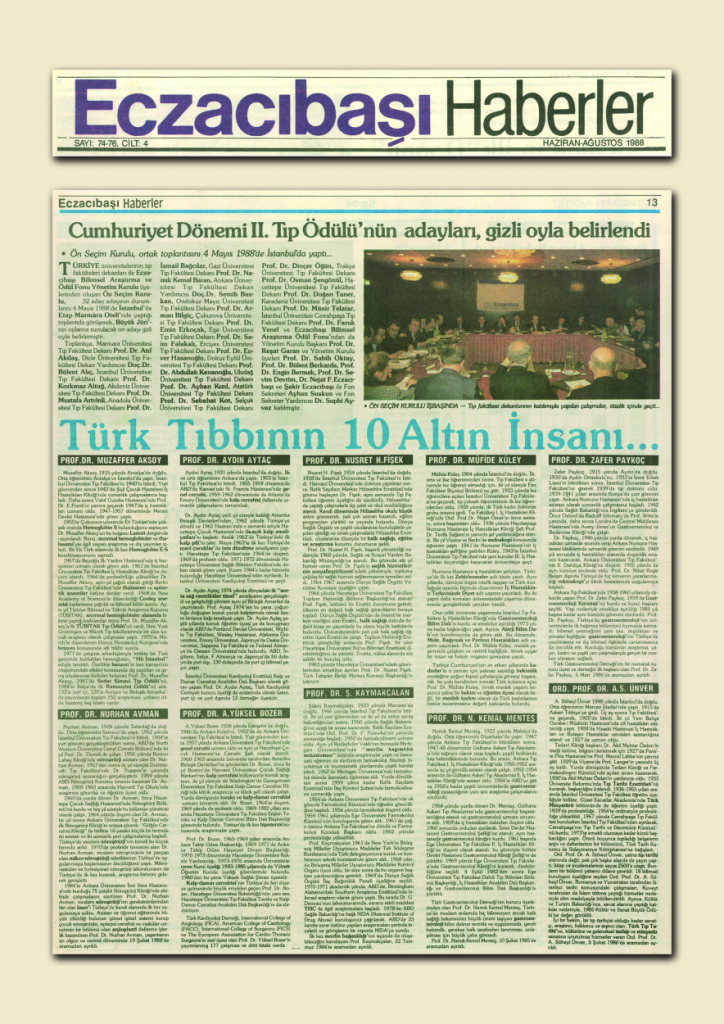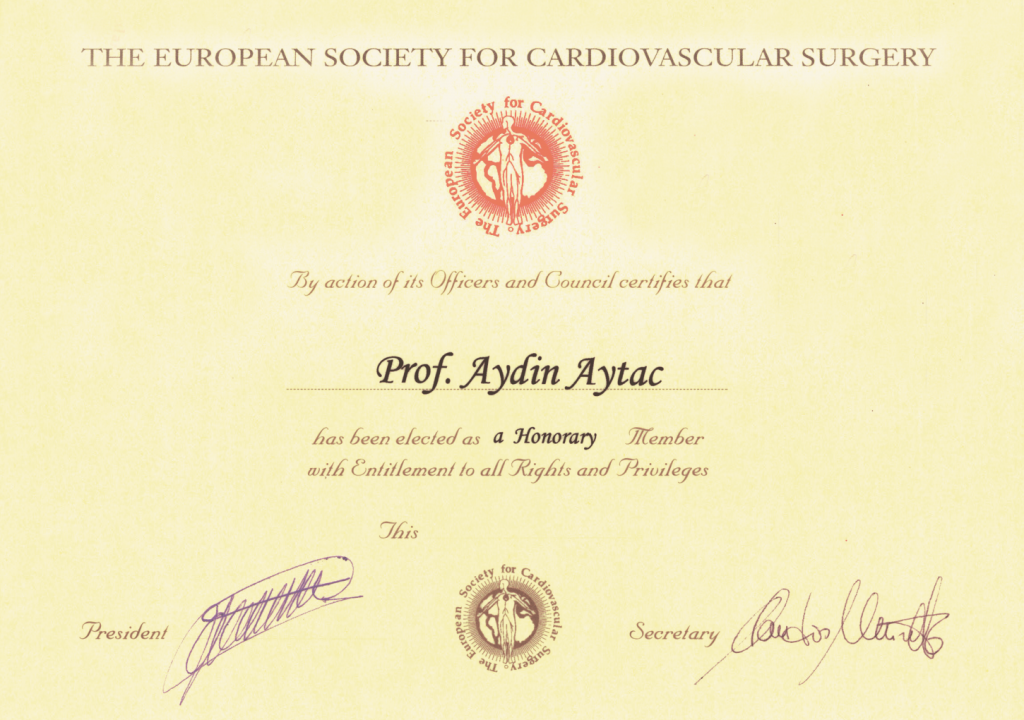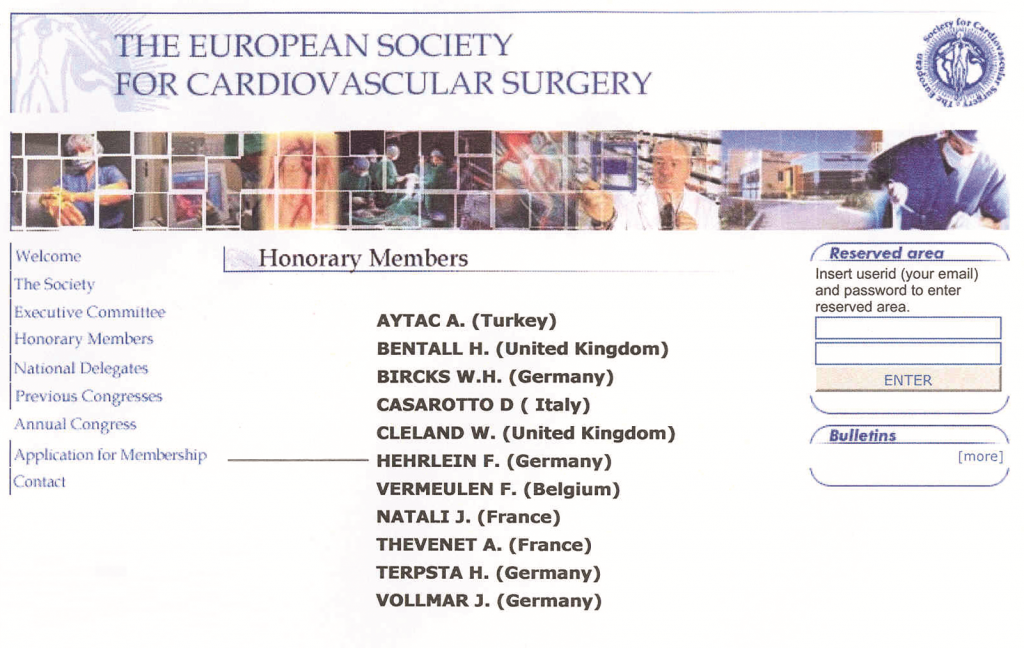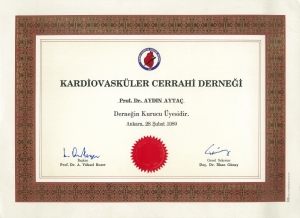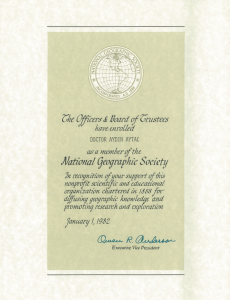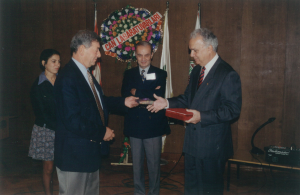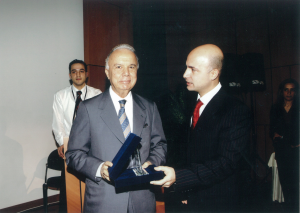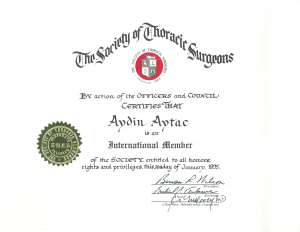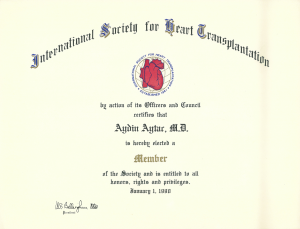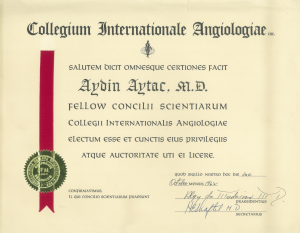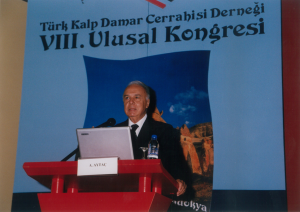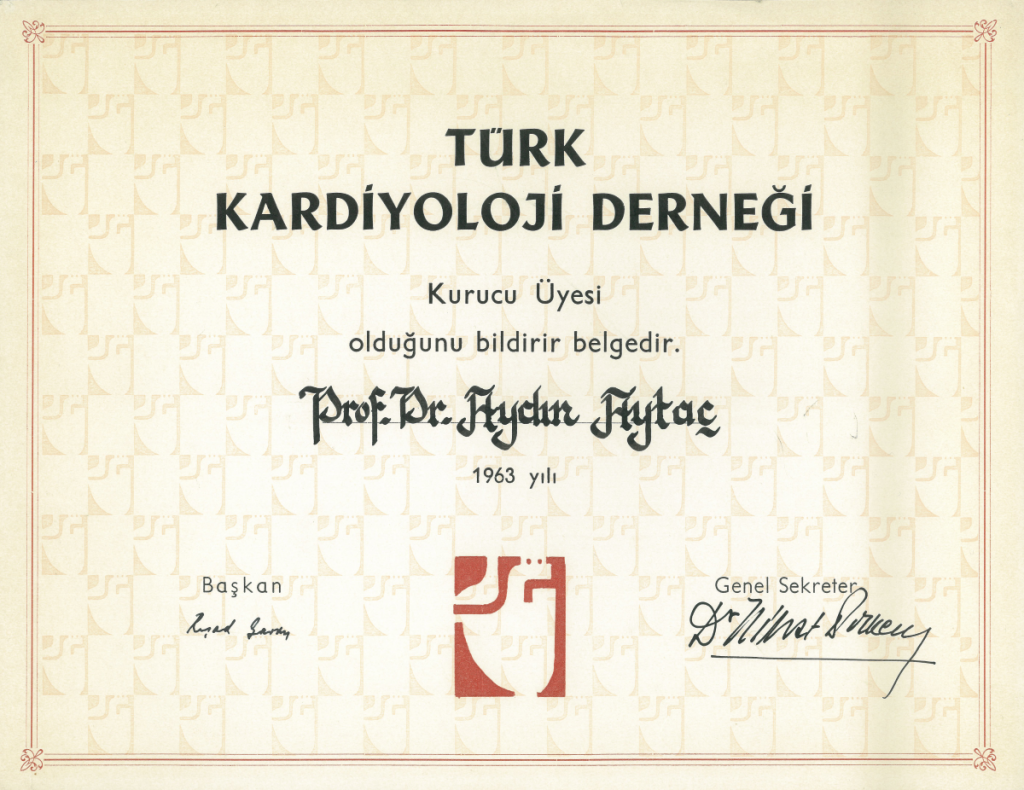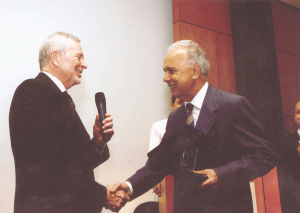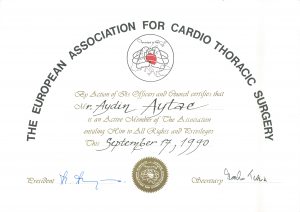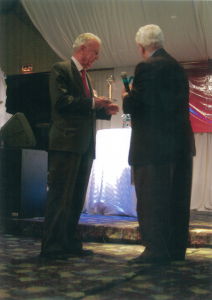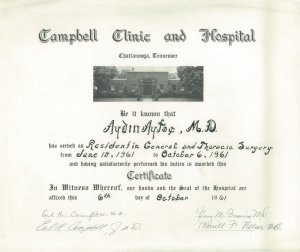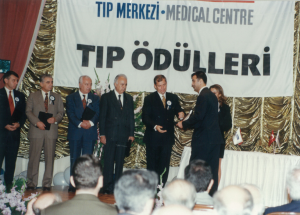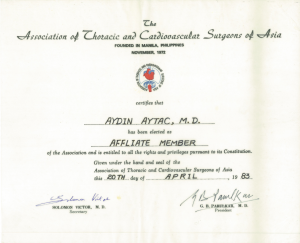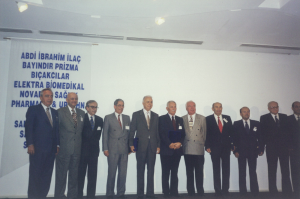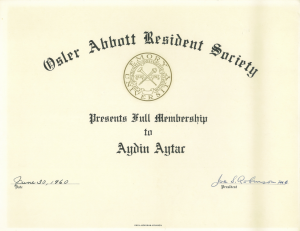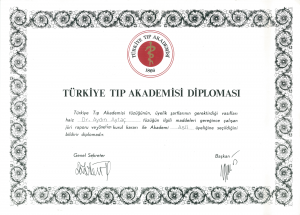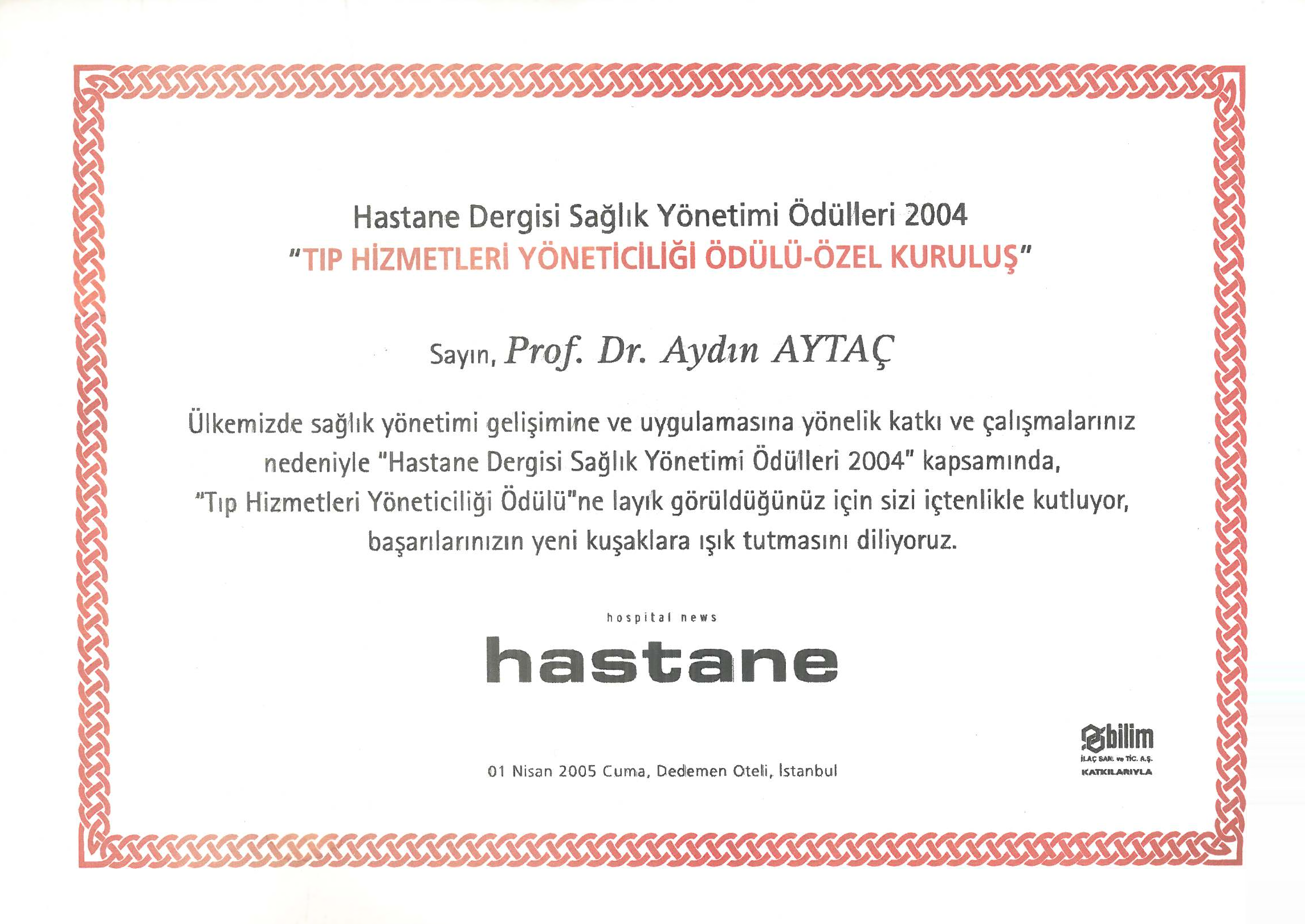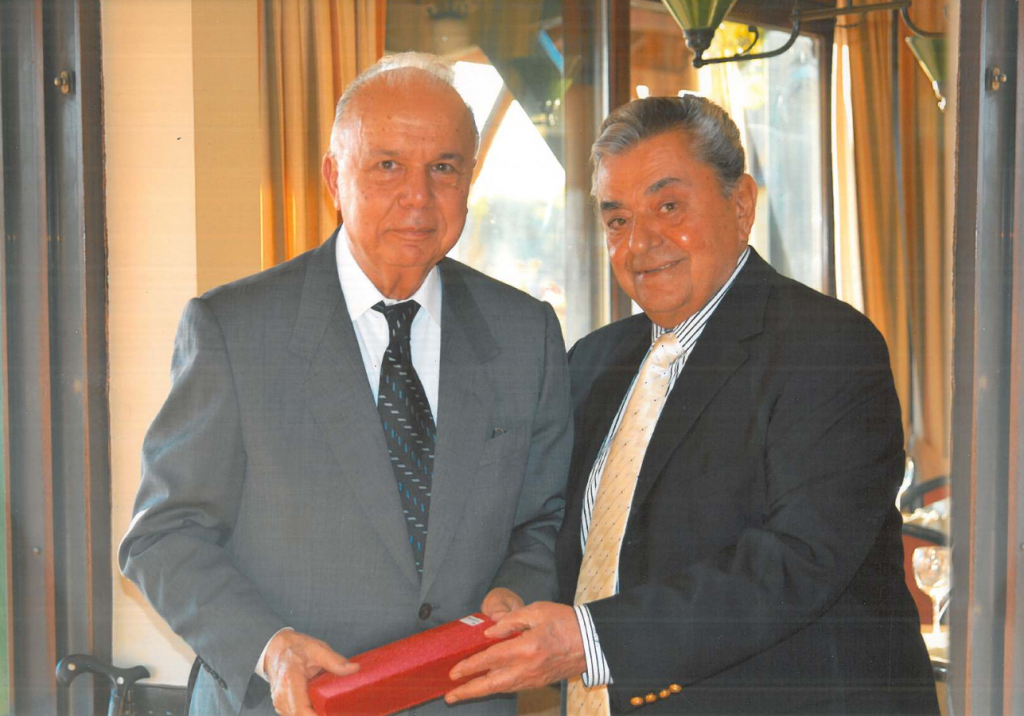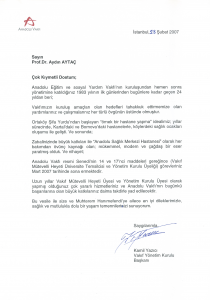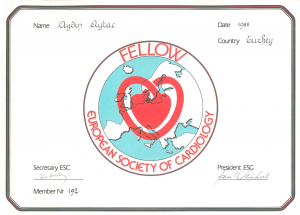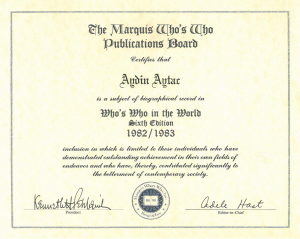F.A.C.C.
Dwight Harken, the famous heart surgeon who had watched a dog surgery I did in 1957, was elected Chairman of the American College of Cardiology in 1965. For this position, a cardiologist is elected each year for about 19 years and a surgeon is elected once in 20 years. When Harken was elected chairman, he gave my name as a candidate for the highest level of membership which could be attained only after the age of 36. “Aydın is just approaching 34,” he said, “but I want him to be elected.” Hence, I had the honor of earning the F.A.C.C. insignia, but due to some urgent heart surgeries I could not go to Boston to attend the ceremony. Instead, a special ceremony was organized at the American Embassy in Ankara.
ihsan Doğramacı, our President, and Dr. Ali Ertuğrul, Head of Cardiology Department, were also present at the event. Raymond Hare, U.S. Ambassador to Turkey, congratulated me with a meaningful speech and presented my Certificate of Fellowship. Then, İhsan Doğramacı and I also made speeches to express our thanks.
The letter from the American College of Cardiology informing me of my F.A.C.C. membership, 1965
![]()
Sedat Simavi Foundation Award
In 1979, I had the honor of receiving the Health Sciences Award given by the SedatSimavi Foundation. The award was presented to me by Erol Simavi at the ceremony which took place in the Hilton Hotel on Sunday, December 9th. My research substantiated that mitral valves could be implanted without hesitation in children with heart disease, up to 18 years of age, also including those below 2 years of age, and that the valve installed would last a life time.
In the speech I made upon receiving the award, I said: “Ever since 1960, surgeries have been performed all over the world to replace irreparable mitral valves with artificial ones. Around the world, hundreds of thousands of patients in the adult category have undergone such surgery. On the other hand, up until last year, the number of artificial mitral valves implanted in children was only about 400 in the whole world. Doctors are rather hesitant and reluctant about this surgery on children for a variety of reasons. The first and foremost of these reasons is the concern that the artificial valve implanted will not be adequate when the child grows up. Another reason involves the drawbacks of having a foreign object in the body in the long run.
In this research, however, we specified the most suitable valve for children and showed that if these suitable valves were implanted, children would not need a new valve or a new operation when they grew up.
Our work was compared with the work of 10 scientific centers implanting the largest number of valves in children. In the end it’s been confirmed that our clinic has the widest range of valves in the world. We have implanted twice as many valves as the center which ranks second in terms of number of valves implanted.
When I was at Hacettepe, I had the chance to implant the first artificial valve in Turkey. Later, we implanted valves even in children under two, up to five kilograms, and even in babies, who are three to eight months old, and we were successful.”
The Sedat Simavi Foundation Award was considerably large in the financial, as well as in the humanistic sense. I concluded my speech saying, “The award has a high value… I am happy to make it the seed of a fund to be allocated for a scholarship. Every year, it will be used for the education of a highly successful, but financially disadvantaged medical student.”
![]()
F.A.C.S.
In 1971, I had gone to Spain for a meeting. After the meeting, John Shellito would be expecting my visit for F.A.C.S. award ceremony in the U.S. Since there were no flights to the U.S. for five days in Spain, I went to Portugal for two days but could not find a place to stay. I called the Turkish Embassy and described my circumstances. “I am going to the U.S., but I couldn’t find a place to stay,” I said. “Can you help me?” They replied, “Please take a taxi and tell the driver to bring you here; we will have made an arrangement by then.” When I arrived at the Embassy, they told me they had reserved a room in a hotel nearby. They also said, “The ambassador would definitely like to see you.”
After a long and warm chat with the ambassador, we had dinner together. As we were having tea, he said: “Aydın, if you accept, I would like to have you as my guest in our home.” I said that I would be happy but that they had already reserved a room for me. “Never mind,” he said, “we can pay for tonight if you wish, but they won’t take it anyway. Do stay with us and I can take you around in my car.”
As we drove around, we saw a Turkish flag on a high spot. Since it was all creased and in poor condition, the ambassador was very upset. He called immediately and said, “I’ll come and check tomorrow, this flag shall be changed.” The next day when we went to check, we were pleased to see a clean and beautiful flag. Then, as we went around, I saw a nice painting done by a street artist and I wanted to buy and give it to him as a gift, but he wouldn’t let me. Instead, he bought and gave it to me as a gift. At the end of those two days, he kindly took me to the airport and walked me all the way to the plane to see me off.
After this pleasant break, I finally went to the U.S. and attended the award ceremony.
Something very interesting happened then. The news that Aydın Aytaç had received the highest scientific honor given by the American College of Surgery had been broadcast on the radio in Turkey, and the late Abdi İpekçi, a distinguished editor-in-chief, had also written a column about it. I heard all this when I got back from the U.S.
![]()
Eczacıbaşı Award
The magazine introducing the 10 winners of the Eczacıbaşı Republican Era Medical Awards.
![]()
Honorary Member of the European Society for Cardiovascular Surgery
At the Fifty-Third International Congress of the European Society for Cardiovascular Surgery held on 2-5 June 2004 in Ljubljana, the capital of Slovenia, Jean Claude Schoevaerdts presented me with my Honorary Membership certificate.
Two months before the congress, I was notified that in addition to the 10 Honorary Members elected in a span of 54 years, I had been elected as the 11th Honorary Member of the Society. I was also notified that after an introductory speech about me at the congress, 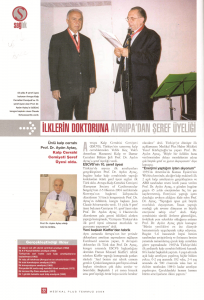 my certificate would be presented to me by the chairman, and I was asked to deliver a speech as well.
my certificate would be presented to me by the chairman, and I was asked to deliver a speech as well.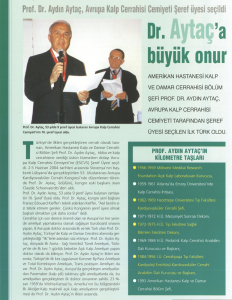
At the end of the meeting I held out my hand to congratulate Edouard Kieffer, the French doctor who had just become the new president of the Society. He suddenly laughed and said: “Actually I am the one who must congratulate you. We are president for only one year, very seldom for one-and-a-half years, and then it is over, whereas the Honorary Membership bestowed upon you is a very rare honor which lasts a lifetime and even beyond.” I have always treasured this moment of honor in my heart as one of the very proud moments for my country and myself.
Dr. Gerald Rainer, a former president of The Society of Thoracic Surgeons, who occupied important positions and was actively continuing his heart surgeries, sent me an elegant letter of congratulations in 2004 upon my election as an Honorary Member.
![]()
